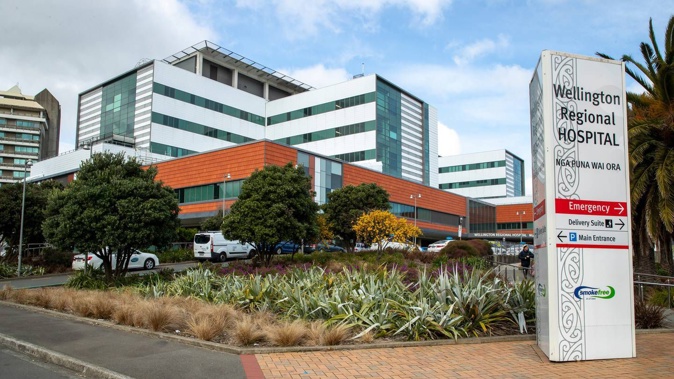
Mental health authorities in Wellington are planning to scrap the region’s crisis response team and outsource a 24/7 triage centre as part of an overhaul of community services for adults with serious mental illnesses.
Twenty-eight jobs across the region are set to be “disestablished” as part of the restructuring, while another 73 roles will have changed reporting lines or responsibilities, according to a proposal document obtained by the Herald.
Te Whatu Ora Capital, Coast and Hutt Valley, the health authority, said it had just finished consulting staff on the proposals. No final decisions are expected to be made until next month at the earliest.
The proposals are part of a wider “change programme” across the region’s mental health services and come at a time of growing concerns about the impact of rising demand and severe workforce shortages on the availability and quality of care for people with serious mental difficulties.
“During the past 12 months, you have told us that our current model of care and approach is not sustainable and has not always been able to deliver the experience or outcomes needed by tāngata whaiora and whānau using our services,” said the proposal document circulated in June, which has previously only been publicly available in a truncated form.
In one of the proposal’s most significant changes, Te Whatu Ora Capital, Coast and Hutt Valley envisages abolishing the region’s stand-alone crisis-response unit for people experiencing significant episodes of mental illness and distress.
Instead, community teams in five locations will provide rapid response services to their patients as part of an “integrated” local model.
According to the proposal document, a 2019 review found the health authority’s attempts to provide a central point of contact and crisis response had led to an “overloaded telephone triage service and less effective crisis service”.
GPs, police, charities and other organisations that dealt with people with significant mental health problems had complained the response they received from the mental health provider under the current model was inadequate, the review said.
That review, which has not been made public, found the crisis response service has for years experienced “sustained, increasing demand and acuity”, which led to an increase in people in acute distress going to hospital emergency departments and “a cycle of duplication of effort, multiple handovers and tāngata whaiora and whānau repeating their stories constantly to different staff”.
Under the proposed new model, Te Haika, the telephone triage centre which is meant to be the provider’s first point of contact will be outsourced “to ensure seamless delivery and a prompt response to acute after-hours service requests”.
Last month, the Herald revealed service users were being told to call Te Haika only during “normal business hours” because it did not have enough clinicians to always respond at night, despite being advertised as “staffed 24 hours a day, seven days a week by mental health and addiction professionals”.
The proposed new model will facilitate a “more seamless experience of support”, the document said, including more consistent support for people transitioning out of specialist mental health services into the care of GPs and charities.
However, the document also acknowledged there are major obstacles to the success of an integrated model, including shortages of qualified staff.
Paul Oxnam, executive clinical director of Te Whatu Ora Capital, Coast and Hutt Valley’s mental health services, said in a statement the restructuring is intended to “provide care that is closer to people’s homes and more joined up with the supports they can access in the community” and to help relieve pressures on services.
“We have engaged in a design process with our staff, stakeholders and priority partners – including Māori, Pacific, those with lived experience, and people with disabilities – which culminated in the development of a change proposal, shared with staff in June,” Oxnam said.
“The proposal outlines a suggested model of care, service delivery model and organisational leadership structure. We are committed to listening to our staff about how to deliver the best possible service for our tāngata whaiora and whānau, and are reviewing their feedback - that will help inform a final decision.”
Te Whatu Ora Capital, Coast and Hutt Valley declined to provide further details until it has considered the feedback from staff.
Last year, a major investigation by the Herald identified services for people in acute distress as one of the major gaps in a system plagued by problems. Across the country, people who are acutely distressed or suicidal struggle to find timely support, often with devastating consequences. Police respond to hundreds of mental health-related callouts every day, and emergency departments are inundated because there is not an adequate crisis response system.
Alex Spence is a senior investigative journalist based in Auckland. Before joining the Herald, he spent 17 years in London where he worked for the Times, Politico and BuzzFeed News.
SUICIDE AND DEPRESSION
Where to get help:
• Lifeline: Call 0800 543 354 or text 4357 (HELP) (available 24/7)
• Suicide Crisis Helpline: Call 0508 828 865 (0508 TAUTOKO) (available 24/7)
• Youth services: (06) 3555 906
• Youthline: Call 0800 376 633 or text 234
• What's Up: Call 0800 942 8787 (11am to 11pm) or webchat (11am to 10.30pm)
• Depression helpline: Call 0800 111 757 or text 4202 (available 24/7)
• Helpline: Need to talk? Call or text 1737
If it is an emergency and you feel like you or someone else is at risk, call 111
Take your Radio, Podcasts and Music with you









